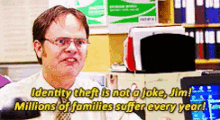How to avoid being scammed while looking for a home in Groningen

Looking for housing in Groningen? Are you in talks for a house that’s located near the city centre and conveniently within your budget and are you considering renting it? Hold your horses! If a housing deal sounds too good to be true, it probably isn’t true and is a hook move by a scammer to lure you in. Housing scams are more common among students in Groningen than you can imagine, especially with the housing shortage . In this blog we will help you from losing your money and mental peace and also save you the hassle of browsing through multiple websites.
Scam Patterns
Maja (name changed for privacy reasons), from India, after completing her pre-departure checklist found a house (located near the city centre) on Facebook by coming in contact with the tenant (a university student) of the room. Subsequently, the tenant connected Maja with the landlord residing in England.
After speaking with the landlord, she decided to secure the accommodation without actually viewing the house, even online, to avoid losing the only option with a positive response. The landlord then introduced Maja to their lawyer, who hails from India but lives in England, to form a rental contract.
Maja at this point realised that things were going way too smoothly and the deal seemed too good to be true. So she decided to research the lawyer’s details in the Indian government's citizenship database based on the documents provided by the lawyer and found the lawyer’s details were legit. After researching a bit more about the tenant and the landlord on Facebook, she believed that the housing deal was legit and was too elaborate for one to plan as a scam.
Maja then paid the deposit and first month’s rent to the owner’s lawyer to a digital bank and was waiting for the house keys to be delivered to her address in India which was also agreed upon in the contract (see page 5, clause 12). She began getting anxious after she did not receive the house keys even after weeks went by, the unresponsiveness of the tenant, landlord and the lawyer, only added to her anxiety.
Regardless, Maja took a leap of faith and reached Groningen and contacted her ‘landlord’. The ‘landlord’ said that they unfortunately could not deliver the keys and cannot come to Groningen anytime soon to hand over the keys as they were ill. And even the tenant was not present in Groningen and was not responding to Maja’s texts on Facebook. Maja clearly understood that she got scammed. She luckily found an Airbnb for a few days and didn’t end up on the streets.
This is a classic Dutch housing market scam. Despite Maja being cautious at every step by researching the tenant, landlord and lawyer’s details online, she could not find any suspicious aspects. It is partly because Maja was desperately looking for accommodation and also because the scam was extremely elaborate and well-planned. This is why you need to know the red flags so that you can identify such deals beforehand, avoid them and report them on platforms for others.
8 Red flags
#1 First and foremost, does the offer sound too good to be true? For instance, is the house/room located near the city centre, close to supermarkets, bus/train stations, unreasonably cheap and all-inclusive, and is furnished? Then it probably is a plot for a scam and is a big red flag. I highly suggest you proceed with caution.
#2 Pattern – Maja’s story highlights the usual scam pattern where the first interaction will usually be with the tenant and then with the landlord who always lives away for a business/family trip and cannot arrange a viewing. The landlord will also usually send you their ID to prove they are legit. Please don’t take it at face value as these so-called ‘landlords’ have probably collected quite a few IDs from prospective tenants like us and could be circulating it. After exchanging a few emails, the landlord will probably ask you to pay the deposit and first month’s rent and sign the contract to receive the keys via post. If you identify such a pattern then, you should check if the same ad is posted on housing websites of other cities by maybe using the ‘search by image’ feature of google images or TinEye, if so, it’s a scam. You could also try searching in this How To Avoid Scammers Facebook group to check if anyone has exposed a similar scam.

#3 Communication - If your contact with the landlord is only through calls, texts or emails and your landlord says that they cannot meet online or in person, you should get suspicious. If they also say that a viewing is not possible then it’s a big red flag as no landlord would decline a viewing as it is also an opportunity for them to meet their prospective tenant. Even if they were not in town they would usually arrange for someone to show you around.
#4 Online Viewing - If you live abroad and cannot physically attend the viewing, it is possible to request an online viewing. Please be aware that it is possible to fake an online viewing. This is usually common with unfurnished houses as one cannot easily make out the interior. I would suggest paying extreme attention to the interior and if anything seems not Dutch-like. For instance, most windows in a Dutch house are tilt-and-turn windows, also called ‘draaikiepramen’. I would suggest looking for such typical Dutch housing interior aspects online via Google or YouTube if you have an online viewing lined up. Here is a video of a house tour to get you started.
#5 Timeframe - Scammers usually tend to rush you into finalising the deal by saying they are getting a lot of responses and would like to close the deal soon with someone who can pay as soon as possible. They could also ask you to pay a certain amount to ‘lock in’ the house. This is yet another red flag.
#6 Registration – If you plan on living in Groningen during your study period, you are obliged to register with the Gemeente, also called “inschrijven”. Therefore, I would suggest you clarify if registration at the concerned housing address is possible. If the landlord denies the possibility of registration or hesitates when you bring up the topic, that’s a red flag as it might be an illegal sublet, a tax scam, or who knows what’s cookin’.
#7 Payment methods – If your landlord prefers you to pay in cash rather than online, it is a red flag as we know paying in cash leaves no trails if not recorded. If you are asked to pay online, I would suggest verifying if it’s an IBAN that they have provided and if it’s a legit Dutch bank by verifying online. If you are asked to send money through Western Union, MoneyGram or other wire transfer platforms to international accounts, it’s a big red flag and is a usual pattern.
#8 Contract - After reading Maja’s story, you must have understood the elaborateness of these scams. The scammers have gone as far as drafting a rental contract which is why you must be extra cautious. Steunpunten Hure highlights some tips to check the legitimacy of a housing contract. Rocket Lawyer’s website allows you to create your rental contract. The website is in Dutch so using Google Chrome to use the in-built page translation feature will help you. Select the ‘Rental Agreement Room’ option and fill in your details. To receive a copy of the contract in the end, you must pay ~5 EUR, but you can also preview the document once you add all your details and compare this contract with the one shared by your ‘landlord’. I’ve already made a preview document for you, since I know you must be drowning with things.
3 Tips
-
Kadaster - Kadaster is a website that you can use to check if the ‘landlord’ is the landlord of the house under consideration by paying a small fee of 2,80 EUR. You can visit their ‘Proprietary Information’ product and enter the house address you are dealing with and then pay via Mastercard, Visa or iDeal. I have already used the product once and am attaching the document as a sample.
-
ESN buddy pair - ESN (Erasmus Student Network) is a student organisation that is usually known for its ESN Introduction Week which is held at the beginning of every academic year. They have a Buddy programme which connects prospective students with local students to provide them with information and tips. You can sign up both to make new friends and request assistance in identifying scams.
-
Emergency housing - In the unfortunate event that, even after looking for the red flags and using the tips to verify the legitimacy of the deal, you were to be scammed, and you don't have a backup, you should sign up for the GSb SOS (Groninger Studentenbond’s Shelter Our Students). If there are student hosts available, you could receive help from them who could let you crash on their couch for a few days. You should also look for available rooms on Airbnb for the week you'll be arriving in Groningen. And maybe even book a cheap room/hostel for a day or two if you are anxious about your housing, to avoid ending up on the streets.
Support
If you would like to report your scam incident to the police by complaining, you can do so using this link. You would also need legal assistance, for which you could reach out to GSb or Steunpunt Huren Groningen as they provide free legal assistance to students. That being said, I would like to point out that such elaborate scams are usually hard to trace back as scammers usually use fake profiles and might not even be in the country.
House hunting is an extremely tedious process. I had to skip classes just to attend viewings both to check out the property and ensure it was not a scam. Due to the increasing number of international students and the housing shortage, there is quite some tension and desperation concerning the housing situation. And the scammers are using this as an opportunity to earn some money. If you are still looking for accommodation, check out our blog on house hunting for information and tips. If everything is sorted (touchwood!), I would suggest taking a look at our Post Arrival Guide: Settling into Groningen & Must-Do’s for International Students blog. Success!
About the author

Hello! I’m Bharath from India. I’m doing my Masters in Industrial Engineering and Management. You will mostly find me running around in Zernike or chilling at ACLO. I usually play badminton on the weekends or cook something Indian with friends. I love travelling, and I plan on exploring the whole of Europe (and if possible the World!) after I graduate. My most favourite place so far is Bruges.

